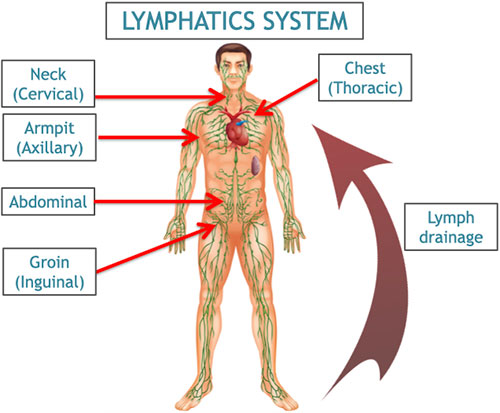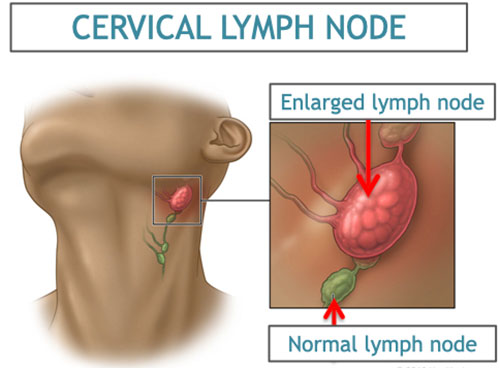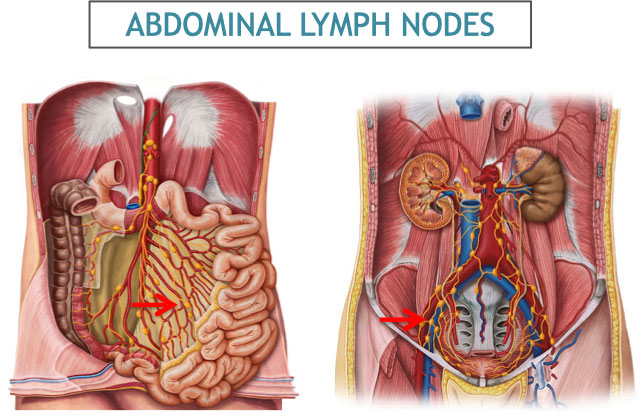LAPAROSCOPIC LYMPH NODE BIOPSY
What is a lymph node?

Lymph nodes are a congregations of lymphatic drainage in the body. They are like train stations for the lymph that drains from tissues of the body. They filter infection and blood diseases.
Why do I need a lymph node biopsy?

In many conditions of infection, blood disorders and even cancers, lymph nodes are the first to show signs of disease. So even before the disease is prevalent or even after treatment that may mask disease, lymph nodes are likely to express the ailment correctly. If your healthcare professional has advised a lymph node biopsy, it is a chance for an accurate and early diagnosis, so that treatment can be given promptly.
Lymph node biopsies can be done from superficial lymph nodes that are easily accessible through a small cut. The commonest areas where these superficial lymph nodes are the neck, armpits and groin. These procedures are called Cervical, Axillary and Inguinal lymph node biopsies, respectively.
Sometimes, a scan may indicate that there are deeper lymph nodes in the abdomen that are accessible only through a big cut and bigger surgery. A Laparoscopic lymph node biopsy is advised in such cases.
Alternatives to a surgical lymph node biopsy are:
- FNAC (fine needle aspiration cytology): a thin needle can sample few cells for examination
- True-cut biopsy: a thicker needle that can sample a small chunk of tissue for examination
However, it is often found that these techniques have not provided a satisfactory diagnosis, or are not able to access deeper lymph nodes or tissues which are close to vital organs, nerves or vessels. In such cases, a surgical lymph node biopsy, done in a safe and controlled fashion, is the best strategy.
What is a laparoscopic lymph node biopsy?

Laparoscopic lymph node biopsy is a surgical excision of abdominal lymph nodes, using laparoscopy. 2-4 small incisions (ports) are made on the abdomen (most are around 5 mm). A scope is used to not only find the lymph node inside, but also to check the entire abdominal cavity (diagnostic laparoscopy). The lymph node sample is taken out through a 10mm cut( one of the ports).
It must be understood that lymph node biopsy is a surgery done to assist the diagnosis of a disease. It is not a treatment, but a diagnostic tool.
What happens to the lymph node specimen after the biopsy?
Your health care provider will usually advise a list of tests that are to be performed on the specimen. From cultures and antibiotic sensitivity testing, to histopathology and immunohistochemistry, a plethora of investigations are conducted on the lymph node immediately after surgery. Sometimes, a frozen section study is performed by a pathologist in the operating theatre itself, so as to give a quick interim diagnosis in emergencies, or to determine that a good specimen has been acquired for accurate diagnosis.
What can I expect on the day of surgery?
Laparoscopic lymph node biopsy is usually a daycare procedure. You will be asked to come fasting (no food or water in the morning). A quick admission process is followed by preoperative preparations and consents. The procedure itself usually takes between 45 minutes to 2 hours, and is performed under general anaesthesia, You are kept in observation for 6 hours after the procedure, and pain killers are given for discomfort after surgery. You are given a light meal after 4-6 hours, after which you could be discharged safely.
What precautions or care must I take after the procedure?
In most cases the symptoms go away in a few days after surgery. You can resume normal activity after 3-4 days. You are advised not to lift heavy weights for 3-4 weeks. You are called for a wound check after a week, by which time you will have most of the reports as well.